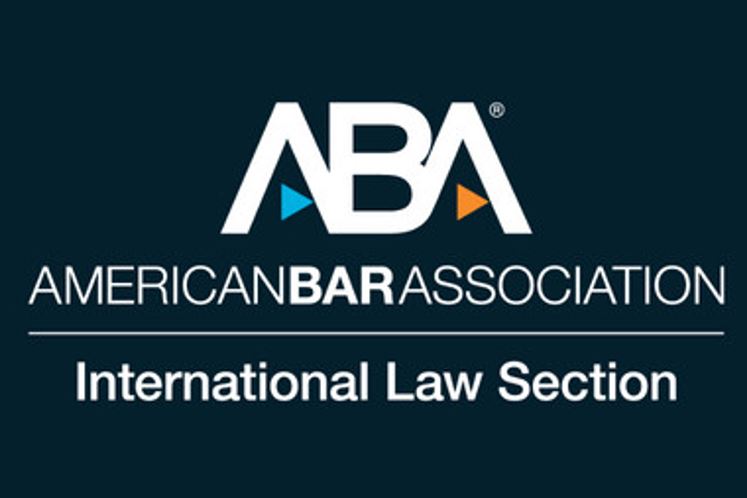I. Can allegations of corruption serve as a bar to jurisdiction of arbitral tribunals or admissibility of claims?
Under Colombian law, arbitration agreements are also considered autonomous from the contract into which they are incorporated. This means that the absence, inefficacy, or invalidity of the contract executed by the parties shall not affect the arbitration agreement.
Based on the autonomy principle that applies to arbitration agreements, regardless of any antecedent criminal offense or corrupt activity between the parties, arbitrators shall adjudicate matters related to economic and private concerns that impact the parties.
Lastly, it is essential to highlight that Colombian criminal law provides alternative mechanisms for dispute resolution, specifically restorative justice processes. These mechanisms allow victims and defendants to reach agreements regarding victim restitution, with the aim of suspending or terminating criminal proceedings. To date, arbitration has not been employed as a restorative justice mechanism. However, within the framework of criminal proceedings, there exists a normative option for arbitrators to decide on reparations sought by the victim in cases involving corruption. It is important to note that the arbitrator’s authority would be limited solely to reaching an agreement on restitution, without opining on guilt or the existence of a criminal offense.
II. Can allegations of corruption affect the validity of an arbitral award?
Awards can be refused to be enforced if they are found to be contrary to Colombia’s international public order. The concept of Colombia’s international public order has a substantive element, which includes the basic rules and principles of the Colombian rule of law that cannot be overruled by international arbitration. The argument that an award in which the underlying dispute is affected by corruption is contrary to Colombia’s public international order may be raised, and it could be successful. Colombia recognizes the universal fight against corruption and can see this in different treaties against corruption entered by Colombia.
III. In annulment or enforcement proceedings, can the court review the award and the merits to determine whether corruption or related offences affect the underlying dispute?
Under Colombian law, the annulment of awards and the recognition proceeding are, in principle, limited to assessing the procedural issues of the arbitration.
The Colombian Arbitration Act does not have grounds for the annulment of domestic awards based on corruption or related offenses. All grounds for annulment aim to review procedural issues, such as the arbitrators’ jurisdiction, the constitution of the arbitral tribunal, improper notifications, erroneous evidentiary rulings, and exceeding the scope of the dispute, among other procedural errors.
Therefore, the competent judicial authority overseeing annulment proceedings will refrain from addressing the merits of the underlying dispute. It will neither assess nor modify the criteria, motivations, probative assessments, or interpretations the arbitral tribunal presents when rendering its award.
In addition, awards can be refused to be enforced if they are found to be contrary to Colombia’s international public order, which could include the fight against corruption.
IV. Can courts review corruption allegations which have not been raised in the arbitration?
Whether corruption was raised in the arbitration is irrelevant for the argument to succeed. The Colombian Arbitration Act does not require the party opposing the recognition to have raised this argument before the arbitration tribunal. Refusal on the grounds of international public order is analyzed ex officio by the court. This means that parties do not have to raise this objection to find and declare it.
V. Do courts defer to the arbitral tribunal’s finding that no corruption acts were committed?
In Colombia, the judicial authority reviewing the annulment petition of the arbitral award may correct or supplement the information in the award, set aside the award, and continue the proceedings based on the order of evidence. These actions allow for a reconsideration of the conclusions reached in the initial award.
VI. Is there a standard of proof used by arbitrators and reviewing courts to assess the existence of corruption?
Nevertheless, considering the possibility that an arbitration tribunal could be conformed as an alternative mechanism for dispute resolution in a criminal process, the tribunal must establish whether the evidence available, documents, testimonies, considering the applicable regulations, are sufficient, relevant, pertinent, useful, among other specific local requirements to support the position of each party.
In this regard, in Colombia, the evidence must comply with the conductivity, pertinence, and usefulness requirements, each of which must be argued. Conductivity refers to the suitability of the evidence to determine a fact, i.e., it is a means allowed by law to prove that fact. Relevance has to do with the evidence directly relating to what is being questioned or discussed. And finally, the usefulness lies in the fact that the evidence contributes concretely to the object of the investigation, as opposed to the unimportant.
VII. Which method do arbitrators and reviewing courts employ to establish evidence of corruption?
There are not many arbitration awards that deal with corruption or related offenses. However, a very notorious case was the Ruta del Sol award, which addressed a contract performed by an Odebrecht subsidiary. The tribunal went beyond the application of a balance of probabilities test and closer to a piece of clear and convincing evidence. In doing so, the tribunal adopted an active approach and used its legal powers to carry out its own investigation to collect evidence beyond the party-produced evidence.
VIII. Are arbitrators seated in your jurisdiction bound by criminal proceedings on issues that could impact the underlying arbitration dispute?
Under the Colombian law, a criminal judgment may constitute res judicata on civil matters. Therefore, certain civil issues, especially regarding fact-finding, may be binding on the arbitral tribunal. However, the arbitral tribunal is not required to stay the proceeding if a criminal investigation is pending.
Under Colombian law, criminal offenses are non-arbitrable, and arbitrators lack jurisdiction to adjudicate criminal offenses. Nevertheless, arbitrators retain the authority to adjudicate the civil ramifications stemming from such offenses or conduct an alternative dispute resolution mechanism.
IX. To what extent do they rely on or defer to findings from parallel criminal investigations?
Given the autonomous nature of arbitration proceedings, Colombian arbitral tribunals are not obligated to suspend their proceedings pending a criminal court decision – whether domestic or foreign – concerning an offense relevant to the arbitration case.
Arbitral tribunals possess the discretion to suspend their proceedings, and it is advisable for them to exercise this discretion to prevent inconsistency between the arbitral award and the criminal judgment.
X. Are remedies available when an arbitral tribunal rules that there is no evidence of corruption but subsequently a criminal ruling decides otherwise?
Under Colombian law, parties can seek to file a request to review the award if a criminal judgment is rendered after the award.
According to Article 45 of Law 1563 of 2012, the revision remedy may be filed within 2 years following the issuance of the award. The valid ground for such revision would be the discovery, subsequent to the judgment, of documents that would have altered the decision contained therein and which the petitioner could not have submitted during the proceedings due to force majeure or the actions of the opposing party.




